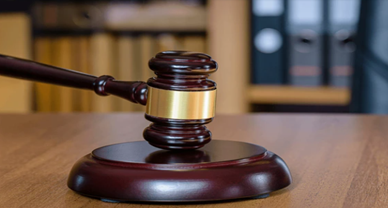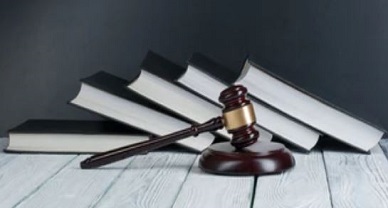Judicial Immunity: Serving the common good
Judicial Immunity Policy in the United States
Judicial immunity is a common concept, based on judicial decisions. It arose in the courts of ancient Europe to prevent people from attacking a court decision by filing a lawsuit against a judge. The defeated parties had to instead take their complaints to the appellate court. The idea of protecting judges from citizens’ money was based on this basic teaching and worked to strengthen the independence of the judiciary. It is widely accepted in English courts and courts in the United States.
Judicial Immunity was first recognized by the U.S. Supreme Court. in the case of Randall v. Brigham, 74 U.S. (7 Wall.) 523, 19 L. Ed. 285 (1868). In Randall the Court said the lawyer who was barred by the judge from making the law could not sue the judge due to the reversal of the decision. In its judgment, the Court held that a judge is not guilty of any wrongdoing unless he has committed “cruelty or cruelty.”
Judicial immunity then crossed the sea, and was imported and consolidated in U.S. law Many cases that began after the Civil War began to open the way for a fuller approach to receive legal immunity. The Civil Rights Act was enacted by the congress on April 20,1871, also know as the Ku Klux Klan Act. It was enacted to protect the injustice, corruption and the misconduct in the southern states due to the civil war. The civil rights act of 1871 set the stage for what would follow insecurity of the judiciary, and other cases had come before the judicial system of the judicial Immunity, was the case of Bradley v. Fisher (1871), in which the U.S. Supreme Court aspects of common law of judicial immunity in U.S. law.
Judicial Immunity by definition applies to all judicial officers, not just judges at all judges. In his article “The Civil, Criminal and Disciplinary Liability of Judges” John O.
Haley explains:
Complete insecurity in public debt is not limited to judges. Judgments have been he has passed it on to all practicing justice, including the justice of peace, magistrates, other ordinary judges, court commissioners, court-appointed arbitrators, law clerks, and others who perform judicial or judicial acts in a similar manner. In Butz v. Economu, For example, the U.S. Supreme Court said the immunization policy applies to judicial functions of auditors of the administrative and management agency judges of the law, Judicial insecurity has been considered ineffective, however, in private individuals allegedly co-operating with a protected judge using a judicial process to fraud. (Haley, 2006, page 284)
The principle of Common Good:
Common Good is different for different people. The Encyclopedia Britannica provides Understanding what might be a Common Good when it says: “You have a sense of mutual benefit indicated that certain goods, such as security and justice, could not be achieved only by citizenship, collective action, and active participation in the public political arena and community service. ” This would suggest that Common Good is not just a citizen’s right goods but rather something that one participates in, something that leads to a better life too their whole existence.[1]
The following quote is an outstanding summary of what Common Good is:
What exactly is “normal justice”, and why has there ever been such a crisis? current discussions of problems in our community? Common beauty is the idea that appeared more than two thousand years ago in the writings of Plato, Aristotle, and Cicero. Recently, a modern ethicist, John Rawls, described the common good “Some common situations are … equally for the benefit of all”. Catholica religious tradition, with a long history of struggle to explain and promote well, it describes it as “the sum of those public health conditions that allow the community groups and their members are equally individual and ready to achieve their own fulfillment. “Therefore, common good involves having social values, the institutions, and the places we all rely on work in a way that benefits everyone. Examples of certain common assets or components of a common profit includes an accessible and affordable public health care system, as well as an effective public safety system and security, international peace, justice and the rule of law, and a clean environment, and a thriving economic system. Because his programs, institutions, and places have such a powerful impact on well-being members of the public, it is not surprising that almost all social problems in one way or another he rest is related to how well these programs and institutions work. (Velasquez, Andre, Shanks, S.J., Meyer, 1992). Common Good then relies on a system that works for Commons. Normal can only be done if that system is working properly. As the previous quotation suggest the system is made up of many parts. It also suggests that only if these components work properly at the same time Common Good wins.
Roots of Judicial Immunity
The history of judicial immunity goes back a long way. J. Randolph
Block (1980) shared one of those early histories in his article: “Stump v. Sparkman and the
History of Judicial Immunity”. Block states that the principle of judicial insecurity was included
1607 during the English trial:
In the case of Floyd v. Barker, Coke established the insecurities of judges in record courts, thus
to ensure the independence of those courts in the review of their new rivals, in particular
the Star Chamber, which was under the control of the king. In doing so, Coke said
for the first time what is now considered to be the basis of the modern public education policy of
insecurity of judgment. First,
[I] if record matters are required. . . never will be the only reason: but the conflicts will not end; et infinitum in Jure reprohatur …
Second, Coke noted:
… Because the State Judges have a fair administration, below the Lord, in all his servants, is not to be questioned by anyone presumed corruption, which leads to the destruction of the record, or of any other to judge before them. . . except it be before the Lord himself; because they only to report to God and the Lord, and to answer no one suggestion in Star-Chamber …
Thirdly, the judge must answer to the bail court as a Star Chamber:
… Will tend to shame and destroy all justice…
Fourth:
… those who are very sincere, would not be free to continue calumniations ..
The basis of Coke’s policy of judicial protection can be summarized as follows:[2] (1) the need conclusion;(2) the need to protect the independence of the courts of common law disputed courts administered by the king; (3) the need to maintain public trust in justice system; and (4) the recognition of potential independent, honest judges. Most are under persecution in the Star Chamber. (Block, 1980, pp. 885-887) Block expressed the initial thinking that led to the goal of judicial insecurity. Perhaps the most important in 1607 was Magistrate Coke’s concern for dismissal or he is responsible for the high court, especially the King’s Chamber. Block again he believed that Coke wanted decisions to be final, referring to the “endless reasons” to worry. and “endless arguments.” Block also cited Lord Cokes’ statement earlier, regarding loss of credibility of the lower court, if its decisions are subject to review and probability dismissal by the high court.
Paul T. Sorenson (1976) suggests that the doctrine of absolute insecurity may in fact even before Floyd v. Barker and Lord Coke. He is compelled: “The doctrine of absolute judicial insecurity has been established at least since 1607, along with other aspects of the concept built two centuries before that date ”(Sorenson, 1976, p. 112).Then the roots of the defense of the judiciary are firmly established within the English Common Empire 17th century legal processes.

Tort Approach
Schuck expresses the tort approach as follows:
The law should provide complete protection for each manager but must provide a conversion of harassment solution against government agency that employs them, and an effective system of imposing administrative sanctions against officials evildoers. The general rule of law for respondeeat superior, or business debt, is Yes it is well established in American privacy law.
The business debt model will greatly improve compensation the government made mistakes by providing the defendant with a solvent. If you are fine once implemented, it will also fix the detrimental effects of social responsibility. It will point Debt not over every official, often in a bad mood conditions that produce error, but in the organization, which may be in a better position to influence the behavior of each official in appropriate ways in society. (Schuck, 1989, p. 667)
Schuck’s proposal would include compensation for constitutional harassment senior judge or agency agent. This is often seen in the business environment, where the business owner or management team is responsible for the actions of their employees. Be aware, and as Schuck points out, a business owner usually has a lot of resources to use to compensate the injured complainant for the offending work; so too, the judge is superior the organization has deeper pockets than the judge.[3]
Is it Serving the Common Good?
Judicial Immunity obviously affects certain people, but individuals, while half of the Commonwealth are not all Commons. Flexibility of the security provided to those who are not at fault for them, to perform their duties all due diligence, honesty in the principles of judging and doing without evil should in fact they are free from any obligation their judgment may have. Appropriate insecurities may be, we have long sought an answer to the Judicial Immunity question held by policy critics. As long as the Court system continues to accept the validity of the Judicial Immunity policy in the U.S., some policies and possible solutions cannot be implemented, little is considered.
Conclusion
Legal immunity does not protect judges in court from administrative decisions made while off the bench, such as hiring and shooting decisions. But insecurity often extends to all judicial decisions where the judge has the right to do so, even if the decision is made “for a corrupt or cruel purpose”[4]. In 1997 a judge in West Virginia, Troisi, got angry with the plaintiff, got off the bench, took off his coat, and bit the defendant in the nose. He did not plead guilty to the charges against the state but was released on federal charges of violating the defendant’s civil rights. He spent five days in jail and was arrested. Because insecurity is based on the judicial nature of actions, not the official title of office bearer, legal insecurity also applies to administrative trials.
Author: Sagar Chaturvedi, in case of any queries please contact/write back to us at support@ipandlegalfilings.com or IP & Legal Filing


